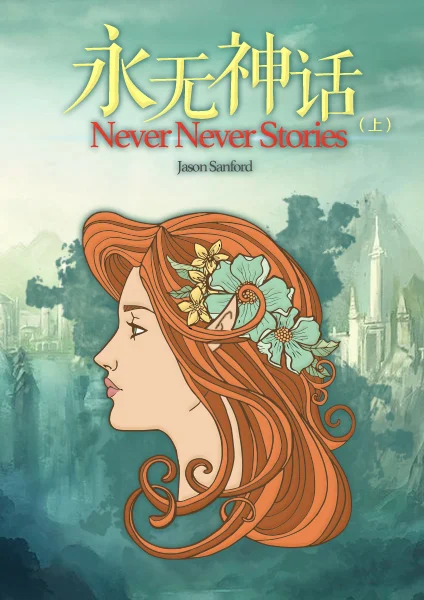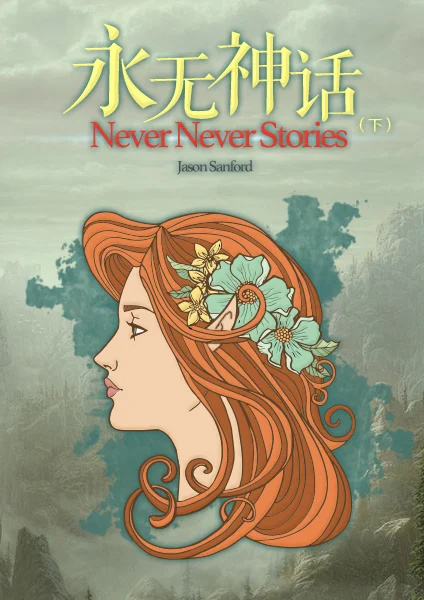Science fiction fans are always looking for the next big thing. For new stories with worlds and universes we never knew existed. For cutting edge ideas and places and characters unlike anything we’ve seen or read or contemplated.
Perhaps the oldest science fiction game is to try and predict trends in the genre. To see where humanity’s science fiction dreams might take us next.
One SF trend I’ve noticed lately is the survival of print books, which have increased sales in the United State for each of the last three years. Despite all the doomsday predictions of e-books quickly supplanting print books, that hasn’t turned out to be the case.
Even in a digital world people love their print books. That’s SF trend #1.
Despite print books doing so well, the sales of science fiction books continue to lag behind fantasy titles. I don’t see this changing anytime soon. The fantasy literary genre continues to be more open to new readers than science fiction, where many novels are so narrowly focused toward genre insiders that it’s difficult for them to attract new readers who aren’t already familiar with science fiction tropes and jargon.
An exception to this is the science fiction subgenre of space opera. The popularity of this subgenre is partly due to the success of the Star Trek and Star Wars franchises — which serve as gateways to written space operas for the general public — and partly because space operas are such exciting SF stories. As a result, more SF authors than ever seem to be writing space operas. Among the new and exciting space operas I've read this year are The Collapsing Empire by Hugo Award winner John Scalzi and The Stars Are Legion by Kameron Hurley. In addition, The Genesis Fleet: Vanguard, a new Lost Fleet series by Jack Campbell, was just released, with many more space operas due for the rest of the year.
So SF trend #2: Space opera remains hot.
That’s not to say readers won’t respond positively to other types of science fiction. I loved Jeff VanderMeer’s new novel Borne and couldn’t put it down. While VanderMeer is usually known for his New Weird fantasy stories, such as with his bestselling Southern Reach series, with Borne he reaches into science fiction. The novel delivers a weirdly futuristic wasteland filled with discarded scientific experiments and a scavenger who nurtures one of these experiments while facing off with a skyscraper-tall flying bear named Mord.
Yes, the novel features a giant flying bear. And believe me, the bear works.
Despite the flying bear, I’m still calling Borne science fiction. The novel reads as if Jeff VanderMeer has created something totally new in the science fiction universe. Call it New Weird SF. As a bonus, Borne is likely to appeal to many readers who otherwise might never consider reading a science fiction novel.
SF trend #3: Write something totally different and unique and people will read it even if they generally avoid science fiction.
Of course, we can’t discuss trends in science fiction without talking about TV and films, especially since most of the world devours visual SF at much higher rates than written SF.
One TV series to definitely watch is The Expanse, which is now the best science fiction series around. The series follows the conflicts and intrigue between three factions in a future colonized Solar System: A United Nations government centered on Earth, an independent Mars federation, and the impoverished belters living on asteroids who are abused by the other two powers.
The Expanse is frequently called “Game of Thrones in space,” a description which does a disservice to the SF show. Yes, The Expanse shares the same deep love of the genre as Game of Thrones, which isn’t surprising considering that the authors of the original Expanse book series — Daniel Abraham and Ty Franck, writing under the pseudonym James S. A. Core — are as fully immersed in the tropes and power of the SF genre as George R. R. Martin is with fantasy.
But while The Expanse features clashes among the elite and powerful just like Game of Thrones, most of the story is told through the eyes of ordinary people who suffer and survive as the powerful fight and scheme. That’s where the power of The Expanse lays — with the series’ characters.
SF trend #4: If people love your science fiction characters, they’ll love your science fiction story.
On the film side of science fiction, Hollywood continues its trend of reimagining old film series, such as with the upcoming Star Wars: The Last Jedi and the new Ridley Scott film Alien: Covenant (which I prefer to call Alien: Ridley Scott Apologizes for Making Prometheus).
But one SF film which captured attention earlier this year for the wrong reasons is Ghost in the Shell, with Scarlett Johansson as the iconic character Major Motoko Kusanagi. Except the character is only called The Major in the film, a possible attempt by the studio to sugarcoat that a white American actress was selected to play the role.
Before the release of the 2017 film I saw the original 1995 Ghost in the Shell anime during a limited run in theaters. The theater was packed was anime lovers, many of whom, like myself, had seen the anime many times but never on a large screen.
The good news is the 1995 version of Ghost in the Shell is still a great film and must be seen anyone who loves either anime or SF. Sadly, the audience was also forced to sit through multiple trailers and insider looks at the upcoming live action film. Based on the trailers it appeared Hollywood ripped off all the best scenes from the original anime and threw in a ton of angst and interpersonal drama while dumping the original film’s deep philosophy.
The special features ended with an exclusive interview with Kazunori Itō, director of the original 1995 anime. Itō said how pleased he was that a big Hollywood director had recreated his Ghost in the Shell with Scarlett Johansson in it. I’m not sure he really meant that. And the audience around me definitely wasn’t impressed with the upcoming film because people laughed at and booed the trailers.
So no surprise from me when the 2017 film bombed.
Which bring me to SF trend #5: Even big Hollywood studios must be careful before messing with classic science fiction stories because genre fans have little tolerance for those who desecrate our SF dreams.
That's one trend which will likely never change.



